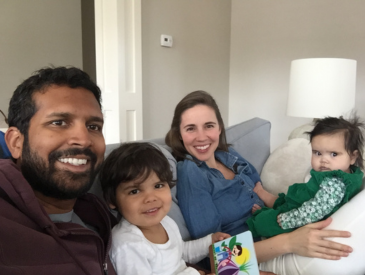Parenting Partnership
The death of a child is one of the most stressful experiences you will face. Whether the journey has been long or short, the experience of processing loss and grieving can bring up all sorts of new feelings within your relationship. Perhaps you have heard that an illness or death of a child can lead families to fall apart, that marriages fail. Research, however limited, indicates that for most families this is not the case. Alongside all these differences and tensions, you may find that you are drawn closer to each other. Establishing mutual understanding creates a foundation for the journey.

Your Team:
A mental health professional who uses therapy and other strategies to support coping and adjustment and treat concerns regarding social, emotional, or behavioral functioning.
A trained professional who works with people, groups and communities to help them better their lives.
A member of the clergy who is responsible for the religious needs of an organization and/or its constituents.
An individual who leads and/or guides individuals or groups coping with life experience and challenges.
You and your parenting partner are the primary team. A psychologist, social worker, chaplain and/or spiritual leader can provide a neutral space for talking through your feelings, issues and concerns, either together or separately—or both. For some people, a trusted friend or relative who listens well makes all the difference.
You and your parenting partner may experience a range of feelings: sadness, anger, depression, anxiety, confusion, irritation, frustration, fear, guilt, relief. Some are more difficult to share or feel more difficult to explain. The feelings might be directed at each other or simply at the situation. You may also at times feel very angry with yourself, worried that you have not done your best for your child, your other children if you have them, and your partner.
Sometimes the differences in how you grieve will feel troubling. Your different views and/or different ways of approaching things can cause strain in the partnership. In most instances, one way is not better than the other. You and your partner can better support each other when you acknowledge that you are in this together, and that each is each trying to do their best. Mutual understanding and respect are important, so that you can move forward together with as much harmony and as little frustration as possible.
– Nate, parent of Joey
The Parenting Partnership
Healthy, helpful co-parenting relationships are also possible if the parents don’t live together. Discuss how you will communicate about how things are going over time.
Defining Tasks and Roles
Each person’s efforts are an important contribution to the family unit. Accepting and talking about what is important will help a great deal. You and your partner can better support each other when you are able to continuously and openly recognize what you each are contributing, and by acknowledging that you are in this together.

